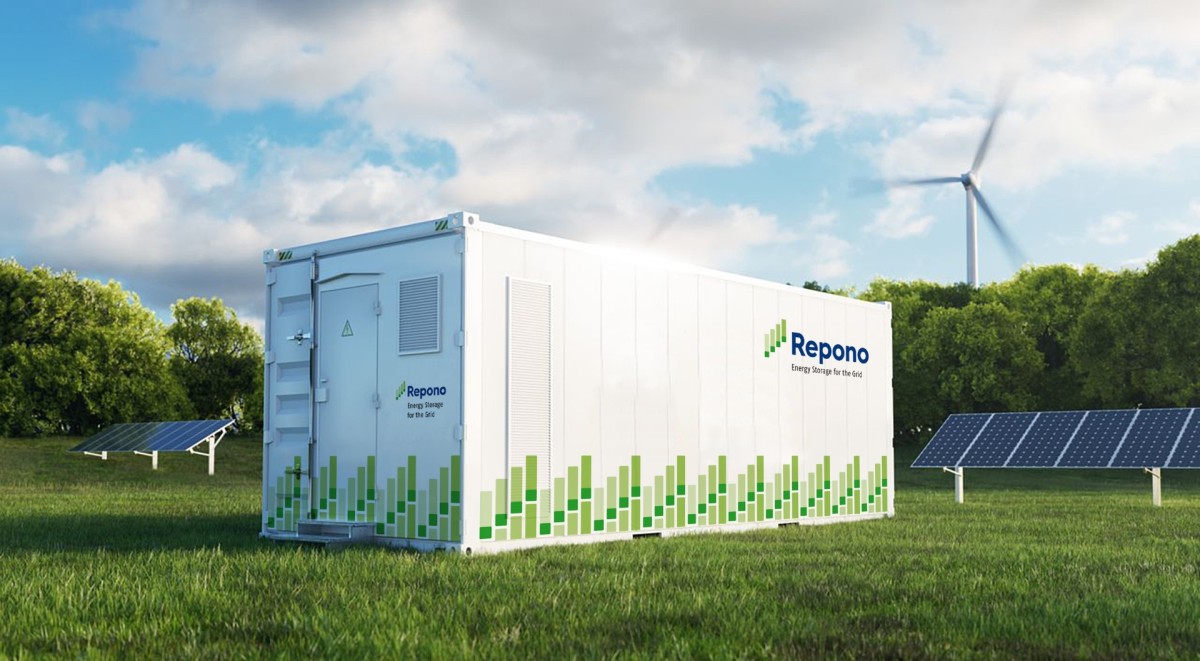EIT InnoEnergy, a leading innovation engine in sustainable energy, launches Repono, a pan-European company focused on owning and operating large energy storage systems (ESS). By applying a holistic, portfolio-based approach that can be replicated across regions, Repono will be able to standardise and accelerate the way these systems are deployed all over Europe to store gigawatt hours of excess renewable electricity, curb the risk of power outages, level-out energy prices and enable a 24/7 balanced clean energy supply. In addition to EIT InnoEnergy, Repono’s early backers include Schneider Electric, SIPLEC E.Leclerc, Stena Metall, Boryszew Group and NTM GmbH. With enough capitalisation for the first years of operation, Repono aims to capture a 10% share of an anticipated 1-terawatt hour (TWh) European market in 2030[1].
To achieve its ambitions of cutting greenhouse gas emissions by 55% by 2030, the European Commission has set minimum national targets of 42.5% for renewable electricity share by 2030. The increased electrification of the economy as the best way to decarbonise, combined with a growing share of renewables will require the rapid rollout of large-scale electricity storage solutions.
Rasmus Bergstrom, CEO of Repono, said: “Europe’s electricity system and grid were built for a steady feed-in of dispatchable energy sources, not to handle the massive influx of decentralized and intermittent renewables. Hence, Europe’s forceful shift away from coal, oil and gas puts our longstanding energy infrastructure under immense stress, leading to frequent curtailments of cheap, clean energy, to volatile and unnecessarily high prices, and power outages. This puts a brake on the energy transition at large when we, as a society, have everything but the luxury of time. This is exactly where Repono steps in.”
Repono directly addresses these challenges by operating in three key areas. Firstly, it will strategically manage its storage capacities via short-term spot markets. Repono will monitor market fluctuations allowing it to buy, charge, sell and discharge at the right time with the aim to shift excess production to periods of excess demand. Secondly, Repono’s balancing services will be crucial to maintaining grid stability and preventing large-scale blackouts. Lastly, by integrating energy storage into power purchase agreements (PPAs) between large independent power producers and industrial companies, Repono will help to ensure a reliable, 24/7 decarbonised electricity supply.
Diego Pavia, CEO of EIT InnoEnergy, added: “The debut of Repono is another proof of EIT InnoEnergy's strong commitment to trailblaze the energy transition. From day one, Repono will be embedded in the world’s largest sustainable energy ecosystem of 1200+ partners from industry, finance, research, and academia, have access to our 46+ investments in the energy storage sector as well as to the 800+ members of the European Battery Alliance. These unique starting conditions will greatly de-risk Repono’s business and enable the company to quickly replicate projects across Europe, doing its bit to accelerate the energy and industrial transition.”
Following its acquisition of BatteryLoop, Repono already has energy storage systems in operation in the Nordics and employs a team of 25 highly skilled employees.




